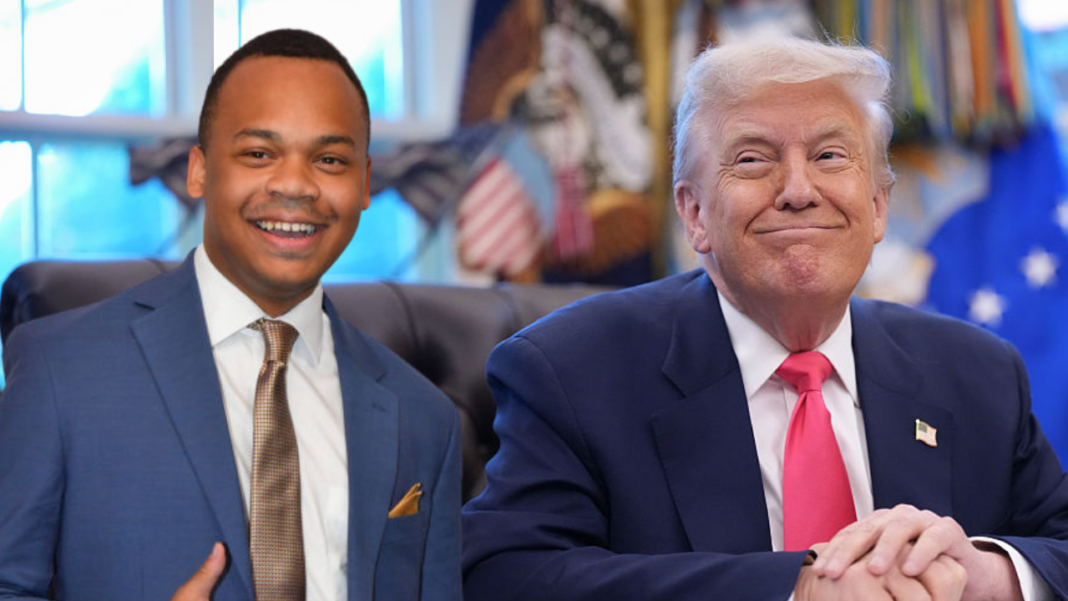The Rise of CJ Pearson: From Viral Sensation to Conservative Influencer
In 2015, CJ Pearson made waves on the internet with an impassioned YouTube video criticizing then-President Barack Obama. At just 13 years old, Pearson rebuked Obama for inviting Ahmed Mohamed, a Muslim teenager falsely accused of carrying a bomb to school after bringing a clock he assembled as a science project. Pearson’s video struck a chord, quickly going viral and marking the beginnings of his public persona.
A Bold Critique of Presidential Priorities
In his viral video, Pearson boldly challenged Obama, asking, “Mr. President…what are your priorities?” He expressed disappointment that the president chose to invite the young Muslim student while overlooking the family of Kate Steinle, a victim of a tragic crime involving an undocumented immigrant. This articulation of contrasting narratives showcased Pearson’s ability to voice contentious opinions, setting the stage for his future as a provocative figure within conservative circles.
Transitioning to a Conservative Voice
Fast forward to today, and CJ Pearson has transformed into one of the prominent faces in the realm of Black conservatism. With a substantial following of over a million on platforms such as TikTok, Instagram, and X, he has cemented his status as a vocal advocate for the MAGA movement. Through his podcast, “Family Matters,” Pearson embodies a confrontational style reminiscent of conservative firebrand Charlie Kirk in political discussions.
Controversial Perspectives on Race and Relationships
In a notable episode titled “Woke In The Streets, White in The Sheets,” Pearson stirred debate by asserting that many Black liberals harbor conflicting views on race. He provocatively questioned why some individuals who advocate against systemic racism appear to engage romantically with white partners. This commentary reflects Pearson’s penchant for stirring up contentious debates, a strategy that seems to resonate with his supporters.
Standing Out in a Crowded Space
Recognized as a rising talent in conservative media, CJ Pearson was recently profiled in USA Today, labeled as the “face of the Black conservative movement’s next generation.” With prominent appearances and expanding visibility, Pearson is focusing on rallying young people to conservative ideals, indicating his belief that cultural momentum drives political outcomes—a sentiment he articulated by stating, “Politics is downstream from culture.”
Navigating the Complex Landscape of Black Politics
Despite his rising influence, Pearson’s movement, often referred to as “Black MAGA,” faces challenges. High-profile candidates such as Herschel Walker and Mark Robinson have fallen short of electoral success, illustrating the difficulties faced by Black conservative candidates. Pearson acknowledged that merely being a Black Republican isn’t sufficient to secure wins; effective messaging and strong fundraising efforts are critical components for success.
The Uncertain Future of Black MAGA
Recent election cycles demonstrate a complex relationship between Black voters and the Republican Party. While Donald Trump saw slight improvements in Black voter support during the 2024 election, the overwhelming majority still favored Democratic candidates. The 2025 general election indicated a reversion among Black voters, illustrating that Trump’s policies, particularly those perceived as anti-Equity, Diversity, and Inclusion (DEI), may not align with the priorities of this demographic.
A Vision for Tomorrow
Despite these obstacles, CJ Pearson remains optimistic about his mission to galvanize young voters towards the right side of the political spectrum. He openly expresses a desire to give back to the nation that has afforded him opportunities, hinting at a possible future in public office. Pearson’s journey—marked by both controversy and ambition—illustrates the dynamic landscape of contemporary conservatism and the evolving role of youth within it.
In Pearson’s words, “This is a country that has always given so much to me. I want to give back to it one day as well.” His aspirations, coupled with his influence, make him a notable figure to watch in the ongoing evolution of political discourse in America.



